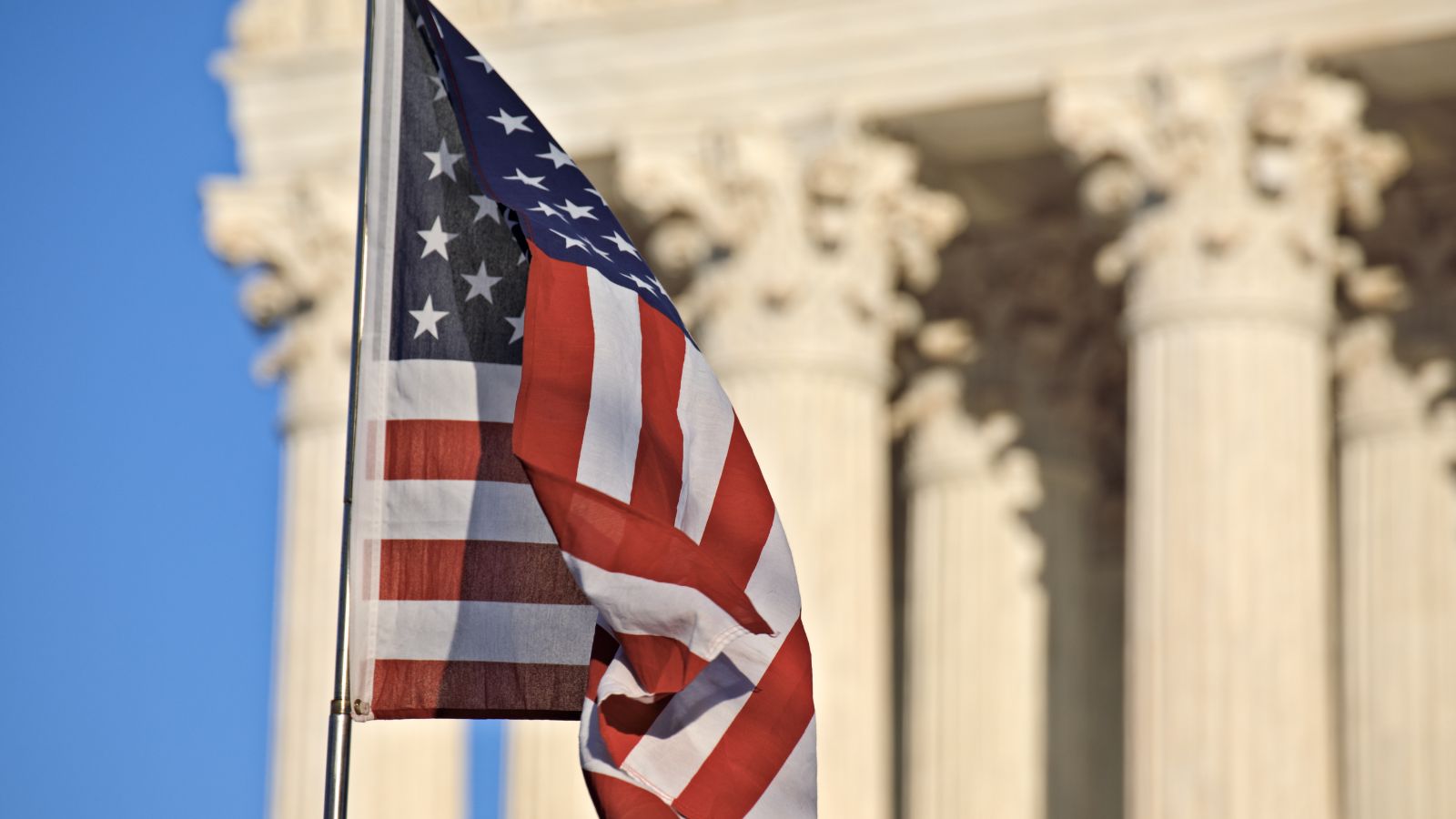Negative stereotypes and politics play a huge role in the perception of America to people across the globe. While some of these reasons could be justified, others are just perpetuations of falsehoods. These 17 reasons, accurate or not, give the world a negative view of America.
Cultural Imperialism

The United States has been accused of cultural imperialism, where American cultural products and values dominate and marginalize local cultures. With Hollywood dominating the movie scene and many significant corporations coming out of the U.S., they became a tremendous cultural force. With Western ideals of beauty and the possible decline of local cultures worldwide, cultural imperialism can be quick and devastating.
Ignorance of Other Cultures

It could be that Americans will travel and not even attempt to use the local language, or that there are TikTok videos of Americans thinking the capital of Italy is France, leading to this stereotype. Whatever the trigger, Americans are perceived as ignorant about other cultures and unwilling to engage with or respect them.
Military Interventions

The U.S. has a history of military interventions that are viewed negatively, particularly when they lead to long-term instability or civilian casualties. Somalia, Haiti, Afghanistan, Iraq, Libya, Vietnam, and others are examples of failed military interventions that have painted the U.S. in a negative light.
Interference in Other Countries

There is a perception that the U.S. interferes too much in the internal affairs of other nations. The Chinese Embassy put out, “Since becoming the world’s most powerful country after the two world wars and the Cold War, the United States has acted more boldly to interfere in the internal affairs of other countries, pursue, maintain and abuse hegemony, advance subversion and infiltration, and willfully wage wars, bringing harm to the international community.” While not every country feels as strongly as China, other nations may think the U.S. needs to mind its own business.
Economic Inequality

The U.S. has significant economic inequality, which is seen as a negative aspect of American society. More than 84% of the wealth is owned by the top 20% of households, and the bottom 40% of the wealth is combined to make up 0.3%. The Walton family, for example, has more wealth than 42% of American families combined.
Perception of Wealth

There is a stereotype that all Americans are rich and own multiple cars and a mini-mansion, which can lead to resentment. That misconception comes in part from America’s robust global economic standing. However, as many Americans know, not all that wealth makes its way into every citizen’s hands, and millions of Americans live in poverty.
Consumerism

Americans are often viewed as fierce consumerists. The credit card industry begins soliciting consumers in high school, offering credit usually without requiring financial qualifications or providing guidance on how the cards should be used, because Americans are taught to spend. The value of objects over experiences and personal connections is frowned upon in many cultures.
Racial Inequality

The U.S. has a history of racial inequality and discrimination, beginning with slavery and continuing on even after the Civil Rights Movement. “Racism has cheated many Americans out of the health care, education, economic security, and environment they deserve,” according to Down to Earth, causing it to be considered a developing country by the UN.
Gun Violence

Personal gun ownership is a controversial topic globally. Americans are viewed as gun nuts because of the media coverage of shootings and gun-related crimes in the country. Countries with stricter gun laws think the U.S. is a dangerous place.
Healthcare System

The U.S. healthcare system is often criticized for being expensive and not universally accessible, though Obamacare has made strides to make it more accessible to all citizens. Despite higher healthcare spending, America’s health performs worse in some standard health metrics like life expectancy, infant mortality, and unmanaged diabetes.
Stereotypes

The image of the American tourist in their socks with sandals, fanny packs, city logo shirts, and ball caps is prevalent, no matter how hard most of us try not to be that guy. Americans are often stereotyped as uneducated, loud, obnoxious, lazy, and obese, which can lead to negative perceptions. And Hollywood doesn’t help us.
Overly Patriotic

Outside of the World Cup, you don’t see German flags everywhere. While it may seem obvious why Germany isn’t loudly patriotic, more countries are like Germany than the U.S. Americans are seen as overly patriotic, which can be off-putting to people from other countries. Patriotism in the United States is unique, and people in different countries often find it off-putting and weird. Pledging allegiance to “the State” daily at school or before every significant event is not typical.
Political Dysfunction

From the outside looking in, the rift between Republicans and Democrats can look like a country on the brink of breaking. The two major political parties choosing to gain headlines by fighting each other for shock value instead of working together for the best for the people isn’t a good look for the nation.
Workaholism

Americans are perceived as workaholics, choosing work and billable hours over family and enjoying life. With many other cultures in the world valuing work-life balance, the live-to-work culture of the U.S. is not appealing, and it seems consumerist and shallow.
Lack of Language Skills

Americans are often seen as monolingual and uninterested in learning other languages. This stereotype doesn’t hold up, as many younger Americans are becoming increasingly able to communicate in languages besides English. Learning a few basic phrases can go a long way to building relationships and gaining trust if you don’t speak the local language where you’re traveling.
Media Dominance

The dominance of American media can lead to a one-sided portrayal of global events and American perspectives. Watching two different news syndicates can paint you a very different picture of events, causing more confusion with the news than just straight reporting of facts would have.
Entertainment Industry

Hollywood and the entertainment industry can perpetuate negative stereotypes about Americans. Movies can portray Americans as party animals, gun-obsessed, racist, or many other negative stereotypes. Celebrity lifestyles can also be to blame for the misconception of what the average American lives like.
Read More: 21 Things That Will Be Lost Forever When The Boomer Generation is Gone

Baby boomers grew up in a vastly different culture, so they have what younger generations consider strange habits. An internet survey recently asked, “What will die with boomers?” Here are the top 22 answers.
21 Things That Will Be Lost Forever When The Boomer Generation is Gone
18 Common Phrases That Signals Support for Trump

Understanding the unique language of politics, particularly among Trump supporters, can provide valuable insights into the nation’s current state. Here’s a deeper look into 17 phrases you’ll likely only hear from this demographic.
18 Common Phrases That Signals Support for Trump
17 Religious Facts People Get Wrong All the Time

Religious beliefs and practices are often misunderstood, leading to common misconceptions. Some are just too general, others are downright out there. So, we’ll be correcting 17 widely circulated ‘facts’ about world religions.
17 Religious Facts People Get Wrong All the Time
Why People Aren’t Religious Anymore: 15 Simple Reasons

As society evolves, so does our approach to spirituality. This article looks at the subtle yet profound shift from traditional religious adherence to a more personal, evidence-based belief system.
Why People Aren’t Religious Anymore: 15 Simple Reasons
17 American Attractions That Not Even Americans Want to Visit

The United States of America—land of the free, home of the brave, and the location of some of the most ‘unique’ tourist attractions you’ll ever lay eyes on.
Get ready to chuckle, scratch your head, and maybe even facepalm as we look at 17 American attractions that not even Americans think are worth visiting.
17 American Attractions That Not Even Americans Want to Visit

